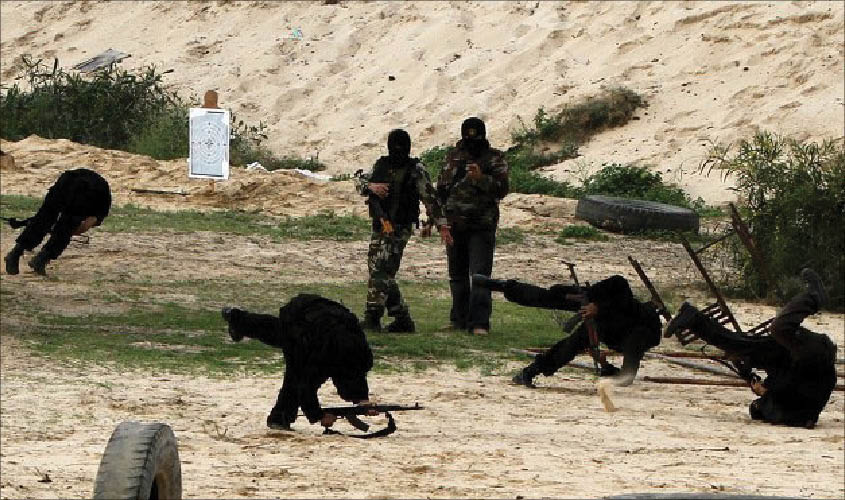Resolve means to end the illegal occupation, to descale military operations in the region and to then take steps to quash all terror cells based in Pakistani territory.
As the international community focuses its attention on Kashmir and the commentariat quickly reads up on the conflict and history of the Indian state, those of us who have spent decades monitoring the issue are aghast at Pakistan’s continued malevolent activity and reluctance to accept its own role in this needlessly brutal and bloody dispute.
Let me start with a statement which I cannot believe has to be repeated: Jammu and Kashmir is an integral part of India and is a wholly Indian state. The Pakistan occupation of a part of Kashmir is illegal and does not respect international order, nor does it abide by sound reason or follow any logic.
As the great nation of India was founded in 1947 and territories were established, the beautiful state of Jammu and Kashmir was determined to be part of India.
This was not settled by post-colonial orders but by the Maharaja of Jammu and Kashmir: he chose to join India and this should be respected by Pakistan, but sadly this is not the case. For successive Pakistani governments to stoke tensions, encourage hostilities and outright steal territory is a flagrant act of failing to respect the integrity of India’s territory.
A major concern is the fact that Pakistan is home to terror cells and their jihadist training camps and bases. A nation knowingly hosting terrorists—while having a nuclear weapon programme—is astonishing and any other nation would be isolated by the international community for such actions, or lack thereof.
Jaish-e-Mohammed is but one example and they are the perpetrators of the cowardly attack on 14 February. Cowardly is the best word I can find to describe the attack last month; nothing has been gained by the attacker, lives were lost and ultimately Jammu and Kashmir will forever be Indian.
My view is that a nation which knowingly hosts terror cells and fails to act should be held responsible and then made to be accountable at international level, whether this takes the form of sanctions or other measures.
India has my unwavering support in taking steps to protect its citizens, territory and interests. In the face of terror, India must have the support of the international community as any continuation of the current norm in Jammu and Kashmir is condoning Pakistan’s blasé attitude to finding a solution. In fact, Pakistan’s current attitude is downright belligerent and does the people of India and Pakistan a disservice.
Inaction leads to further suffering and stalled progress of any possible peace. If Pakistan had come to the table years ago and halted their illegal occupation where would we be now? How many lives would have been saved?
Off the back of the military skirmish and the successful strike by Indian Air Force, Imran Khan called for talks and released the Indian pilot. He was elected as a reformer, a new type of leader: someone who can lead Pakistan into pastures new. I remain hopeful that in his time as premier Khan will be able to live up to this, however, his immediate priority should be to resolve the issue of Jammu and Kashmir.
Resolve means to end the illegal occupation and respect India, to descale military operations in the region and to then take steps to quash all terror cells based in Pakistani territory.
Narendra Modi has shown how to lead, as a statesman and as an astute tactician: he has sought at all times to engage with a peaceful solution to the dispute, but at the same time, is prepared to take decisive action and to instruct the armed forces to take necessary action to eliminate terrorists. If Pakistan does not do the same then India should be afforded more room to manoeuvre in the region.
We mourn those who lost their lives and suffered horrific injuries on 14 February and we must reflect on how we reached this situation. Pakistan has failed to act, it has harboured terrorists and it has shown a lack of appetite to address fundamental issues of cooperation with its neighbour.
A spot of housekeeping before I end: I do wish the international community—including the BBC and Jeremy Hunt, the UK Foreign Secretary—would stop referring to the region as “India-administered Kashmir”. I wrote to Jeremy Hunt on this issue after he posted on Twitter in support of India post-attack, as it is an incorrect term which suggests that India has expanded its territory at the expense of another nation, which we all know is false. I have also taken the BBC up on their use of the phrase.
Bob Blackman is a Conservative MP who represents Harrow East in the House of Commons. He is Vice-Chair of the Indo-British group in UK Parliament and Chairman of the British Hindus group.

